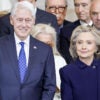The recent global financial panic and recession had many authors. Millions of individuals and businesses made bad decisions about investing and debt. Scores of big shots like Dick Fuld, former CEO of now defunct Lehman Brothers, gambled big and lost bigger. And then there were those few who were in a class by themselves. Those whose actions cannot be said to have directly caused the meltdown but contributed to it far above all others.
Chief among those few are former Federal Reserve Chairman Alan Greenspan, who presided over an overly lax monetary policy and somnambulant financial regulatory oversight to sow many of the seeds of the recent disaster. This is the same Alan Greenspan who now says we need to raise taxes. At least in bad judgment he’s consistent.
No, he isn’t. As he said before a gathering at the Council of Foreign Relations, “I am in favor for the first time in my life of raising taxes.” To paraphrase a now-famous line from Senator John Kerry (D–MA), he was against the tax hikes before he was for them.
At the same address Greenspan also remarked that the fiscal stimulus “was working far less than anyone anticipated.” Wrong again. We have said all along the stimulus would fail to stimulate because it is premised on the simple fact that in borrowing to finance its deficits, the government must reduce private demand just as much as it raises public demand.
What has the deposed Maestro so in a tax-hike tizzy are the Obama budget deficits. Obama inherited a huge budget deficit and a weak economy, so he chose to embrace the deficit, making it much greater largely by jacking up spending even further. In 2009, federal spending hit almost a quarter of our economy. It’s projected to remain at about a quarter of the economy in 2010 and 2011 and will likely fall little in the years to follow under Obama’s policies. The historical norm for federal spending is about 20 percent.
All this spending has left the deficit around 10 percent of our economy, which is simply unsustainable. Either taxes have to go way up or spending has to come way down. That is a budgetary fact, but which way we go is an economic and political choice. To Greenspan, “Our choice is not between good or bad; it is between terrible and worse.” Greenspan is right, but only if taxpayers can be bamboozled by Obama and friends and their big-name enablers to pay a lot more tax.
There is a better alternative: push spending back down to normal levels. That’s the third choice that is neither terrible nor worse—except in the eyes of the big spenders in Washington. Can spending be cut that much? Of course it can, if there’s political will and political leadership.
Rather than heed the advice of the perpetually errant, we should hearken unto sager voices like those of George Schultz, Michael Boskin, and John Taylor in today’s Wall Street Journal. They argue that all we need right now is to prevent the tax hikes, cut the spending, deal with entitlements, preserve sound money, and halt the federal regulatory onslaught.
Will cutting spending be easy? Well, compared to what? Cutting spending will be easy compared to raising taxes, especially in the current environment, where raising taxes on a weak economy is preposterous and a national anti-Washington, anti-establishment wave is brushing aside all in its path, including (thankfully) the sad epilogue to a former Fed Chairman’s long and now inglorious career of persistent error.
































10 Replies to “Greenspan’s Latest Mistake: Tax Hikes”